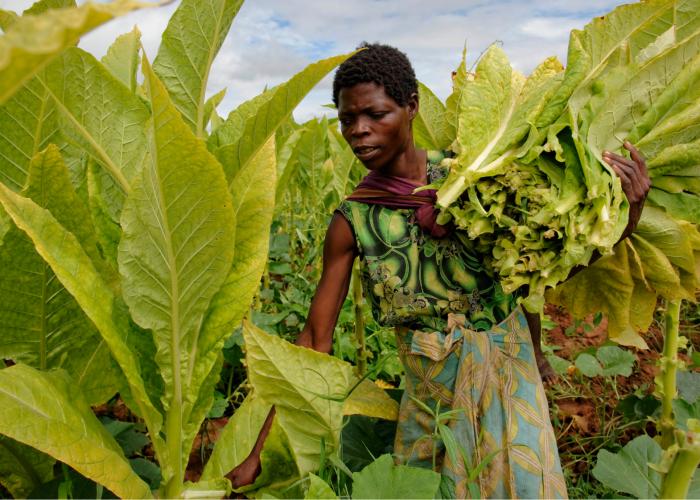
The Global Coalition is committed to advancing social justice and decent work
Our mission
Foster multilateral cooperation and partnerships, accelerating progress towards the achievement of the SDGs. The Coalition serves as a platform to generate political commitments, investments and concrete actions that support social justice in alignment with national priorities.
Why a Coalition?
Our world faces challenges to social justice, stemming from overlapping crises and long-term structural economic transformations. Rising rates of extreme poverty, working poverty, child labour, youth unemployment, and informal work underscore the urgency of addressing inequalities and ensuring decent work globally.
How it works
The Coalition intervenes by enhancing advocacy, promoting policy coherence, and generating knowledge. Through cooperation and partnerships, we mobilize resources to address critical issues and evolve our activities over time to best serve the interlinked causes of social justice and decent work.
I see such a Coalition as a crucial force to help advance the Sustainable Development Goals and meet the challenges of today and tomorrow. At its heart, this effort is about rebuilding the social contract through people-centred policies grounded and guided by social justice.
Governance arrangements
Forum
Coalition partners convene annually, either remotely or in person, to discuss thematic issues, share best practices, and facilitate knowledge exchange.
Coordinating Group
Comprising of committed partners, this group meets twice a year to guide the strategic agenda, facilitate communication, engage external stakeholders, and mobilize resources effectively.
Secretariat
Hosted by the ILO, the secretariat supports key events, including Coordinating Group and Forum meetings, and maintains a repository of good practices through a web-based portal.

Thematic priorities and actions
The Coalition’s thematic development is built on the common priorities and opportunities jointly identified by its partners.
14 key interventions - identified through an inclusive and consultative process with partners for their potential to drive transformative, multi-stakeholder impact on the ground, are being deployed under the Global Coalition for Social Justice to accelerate progress toward the Sustainable Development Goals (SDGs) and advance social justice.
Centre of Excellence on Inequalities
Tackling inequalities through innovation and collaboration: The Centre builds global data systems and advances pioneering methodologies to measure and monitor inequalities. By combining cutting-edge research, inclusive capacity-building, and strategic partnerships, it delivers integrated policy solutions with both global and local relevance.
- Equal Pay International Coalition
Acts at the global, regional, and national levels to support governments, employers’ and workers’ organizations, and other stakeholders in taking concrete steps to reduce the gender pay gap. EPIC accelerates progress towards equal pay for work of equal value (SDG target 8.5) by raising awareness, sharing knowledge, and embracing innovation.
Human Rights Economy
A Human Rights Economy is an approach that grounds economic and social policies in human rights and related labour rights, enabling meaningful progress toward equality, justice, and sustainability. By addressing structural barriers and fostering inclusive participation and social dialogue, it supports countries in advancing their obligations and commitments and delivering tangible results for both people and the planet.
Equitable food systems
Promotes an integrated and coordinated approach to design and implement policies fostering equitable food systems that end hunger and advance social justice for all.
- Productivity Ecosystem for Decent Work
Supports countries in implementing an approach that addresses the root causes of low productivity and decent work deficits in a systemic and integrated manner. Promotes policies for structural transformation toward higher productivity and more and better jobs.
- Responsible Business for inclusive and sustainable societies
Facilitates exchange and scaling up of policies and initiatives by governments, social partners and enterprises that promote responsible business conduct in line with the recognized international instruments and fosters business behaviour that contributes to sustainable, inclusive growth and decent work. It operates through multi-stakeholder collaboration, to drive country-level action that supports capacity building, policy coherence, and facilitates dialogues and collective action among all actors to advance social justice across sectors and regions.
- Empowering youth for Social Justice
Aims to enhance opportunities for young people through decent work, skills development, and entrepreneurship. It drives greater youth participation in shaping policies and actions at global, regional, and national levels, particularly through the UN Global Initiative on Decent Jobs for Youth.
- AI for social impact
Promotes learning and action on the development and deployment of artificial intelligence to advance social justice through enhanced collaboration, including through the Network of Observatories on AI and Work, and build on existing initiatives to assess the impact of AI, promote dialogue on digital skills and working conditions, and harness AI tools that enhance both productivity and decent work.
- Global Accelerator on Jobs and Social Protection for Just Transitions
Supports the design, financing and implementation of national road maps to accelerate decent job creation and universal social protection for just transitions at the country level. Promotes integrated, rights-based and gender responsive policy and sectoral approaches based on social dialogue, integrated financing that promotes investments with a social dividend, and multilateral cooperation.
- Initiative on living wages
Provides a collaborative platform for partners to exchange experiences, share good practices, and align their efforts in estimating and operationalizing living wages in accordance with ILO principles. Supports partners in translating the concept of living wages into practice by strengthening social dialogue and empowering wage-setting institutions.
- A just transition towards environmentally sustainable economies and societies for all
Just transition maximizes the social and economic opportunities of climate and environmental action, including an enabling environment for sustainable enterprises, while minimizing and carefully managing challenges. It should be based on effective social dialogue, respect for fundamental principles and rights at work, and be in accordance with international labour standards.
- Cotton Partnership
Promotes sustainable cotton production by improving working conditions, creating decent jobs, investing in skills development and strengthening livelihoods along the cotton supply chain. It supports West African countries in the design and implementation of an ambitious plan to upgrade textile and garment manufacturing processes, underpinned by social dialogue and decent work.
- Sustainable investment for social justice
Promotes the integration of social criteria into investment decision-making processes. Seeks to enhance the social aspect of sustainable finance frameworks, including in related regulatory approaches, as well as ESG (environmental, social and governance) and disclosure frameworks and by promoting sustainable finance models that balance social, environmental and economic outcomes.
- Advocating for social dialogue as a governance tool promoting social justice
Seeks to promote a common understanding of the importance of social dialogue and enhance it through: Research, data, and knowledge development and dissemination; Advocacy for consensus-based solutions across topics and sectors; Capacity-building and technical assistance to mainstream and strengthen Social Dialogue at the national, regional, and global level, including the UN system, and beyond.

Origins
The creation of the Coalition has been welcomed by a large number of Heads of State and Government, ministers and other global leaders, including the UN Secretary General.
The Global Coalition for Social Justice is an initiative of the ILO Director-General Houngbo, and has been shaped and developed in close consultation with ILO tripartite constituents, and endorsed by the ILO Governing Body in November 2023. The creation of the Coalition has been welcomed by a large number of Heads of State and Government, ministers and other global leaders, including the UN Secretary General.
The Coalitions scope of work is anchored in the ILO key foundational texts over e period of century that underscore the transformative power of social justice in fostering cohesive and productive societies, reducing poverty, hunger, inequalities and social tensions.

Partners
Participation in the Coalition is voluntary and open to a wide array of partners, including governments, employers’ and workers’ organizations, international institutions, enterprises, non-governmental organizations, and academic institutions.
Partnerships aim to increase visibility, amplify impact, and contribute to the achievement of various SDGs, emphasizing goals related to poverty eradication, gender equality, decent work, reduced inequality, and peace and justice.
The Global Coalition for Social Justice invites partners from all sectors to join this transformative journey. By becoming a partner, you commit to advocating for social justice, upholding UN and ILO principles, and actively contributing to advancing social justice globally. Together, we can leverage our collective strengths to make a meaningful impact, promote policy coherence, and foster a world where social justice is a cornerstone of renewed multilateralism.
Join us in building a future where freedom, dignity, and equal opportunity are accessible to all.